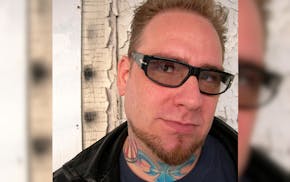John R. Silber, 86, who transformed a faltering Boston University into one of the nation's leading private schools in a volcanic 25-year presidency that promoted innovation, crushed opposition and made him America's highest-paid educator and one of its most divisive, died Sept. 27 at his home in Brookline, Mass.
Silber had been treated for liver disease.
A philosopher by training but a fighter by instinct, Silber believed in old-fashioned hard work and academic excellence. He arrived in Boston when protests against every value he cherished were sweeping campuses across the country. He waded in, and from 1971 to 1996 he ruled BU with a tigerish ferocity that delighted admirers and enraged critics. There were plenty of both.
He took a leave in 1990 to be the Democratic candidate for governor of Massachusetts. While he lost narrowly to the Republican candidate, William F. Weld, there was talk of a presidential race. But he returned to academic life, was the university chancellor from 1996 to 2003, and retired as president emeritus with a multimillion-dollar package that touched off one more controversy in a career filled with them.
A short, tough Texan born with a withered right arm into a family of strict Presbyterians who never told him of his father's Jewish forebears or of an aunt gassed at Auschwitz, Silber had fought battles all his life: against bullies as a boy, academic foes as a University of Texas professor and often restive students, professors and alumni at Boston University.
In a struggle often played out in the national media, Silber survived sit-ins, street protests, strikes, mass resignations, death threats, a suspicious fire that destroyed his home, a Civil Liberties Union lawsuit, federal and state investigations touching on his financial dealings, and critics who called him a tyrant..
Irving Adler, 99, a former New York City teacher whose prolific career writing books about the elegant essentials of science and math, mostly for young people, began after he was forced from the classroom during the Red Scare of the early 1950s, died Sept. 22 in Bennington, Vt.
The cause was a stroke, his daughter Peggy Adler said.
Adler was 22 when he joined the American Communist Party in 1935. Sixteen years later, when he was chairman of the math department at Straubenmuller Textile High School in New York, he was subpoenaed to testify before the Senate Internal Subcommittee investigating Communist influence in the nation's schools. He refused to answer the senators' questions, citing his Fifth Amendment rights.
Within weeks, he was taken away from his students.
"I was teaching a class when the principal sent up a letter he had just received from the superintendent announcing my suspension, as of the close of day," he recalled in 2009. He was later dismissed.
Adler was among more than 1,150 teachers who, in the anti-Communist furor of the Cold War, were investigated under New York state's Feinberg Law. Enacted in 1949, the law directed the state Board of Regents to list organizations it considered subversive and deemed membership in those organizations prima facie evidence for firing any public school employee.
Called into the office of New York City's school superintendent, William Jansen, Adler was asked, "Are you now or have you ever been a member of the Communist Party?" Once again, he refused to answer. He was one of 378 city teachers ousted under the Feinberg Law and, based on his last name, became the lead plaintiff in the case known as Adler v. Board of Education.
NEW YORK TIMES

Whitey Herzog, who managed Cardinals vs. Twins in 1987 World Series, dies

Official who helped MSHSL on pioneering ventures dies at 89

Former 'KQRS Morning Show' prankster Lee Siegfried, aka Crazy Cabbie, dies at 55

Richard Serra, who recast sculpture on a massive scale, dies at 85
